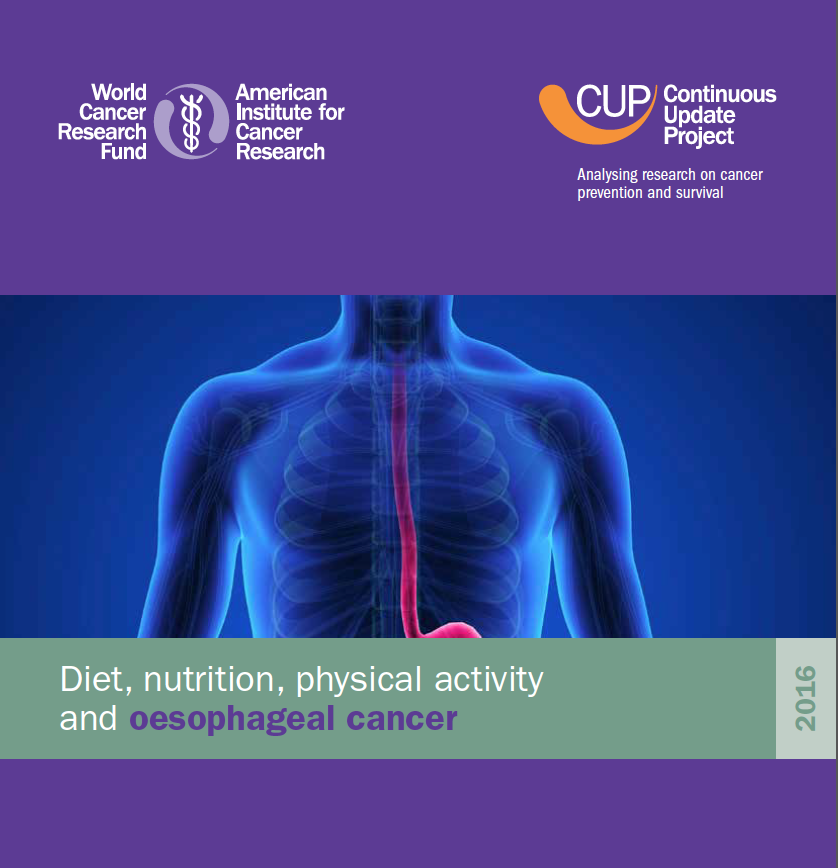Our latest Continuous Update Project report was released today, and it’s important not just for the specific cancer site the report focuses on – esophageal – but for cancer prevention overall.
The report found that consuming alcoholic drinks and being overweight or obese increase the risk of developing esophageal cancer. And although evidence suggests that eating a diet high in vegetables and fruit and being physically active may be protective, more research is needed to confirm these links.
For the first time there was enough research for the CUP Expert Panel to make separate conclusions for each of the two major types of esophageal cancer: squamous cell carcinoma and adenocarcinoma. These two subtypes of cancer have different causes and patterns of incidence, so analyzing them separately allowed the panel to determine which lifestyle factors play a role in each type.
Smoking is known to increase risk of both of these cancer types.
The Expert Panel concluded that overweight and obesity increases risk for adenocarcinoma, and alcoholic drinks increase risk for squamous cell carcinoma. Squamous cell carcinoma is by far the most common type of esophageal cancer worldwide, while adenocarcinoma is the most common type in the US.
Over the past few decades in the US, the incidence of squamous cell carcinoma has decreased while the incidence of adenocarcinoma has increased. This increase has occurred alongside the increase in obesity in this country.
The ability for researchers to analyze these two types of esophageal cancer separately is an important step forward and is vital to understanding the causes and the biology of these cancers, crucial factors to consider for cancer prevention and treatment.
These findings also reinforce that there are steps that people can take now to reduce risk of esophageal and other types of cancer: limit alcoholic drinks, eat more vegetables and other plant foods, and boost physical activity. If this sounds familiar it’s because this is sound advice based on AICR’s Recommendations for Cancer Prevention, and we know it works.
To read more about the report, go here.






